We are a team driven by passion. We believe that things can be better if we do them differently, in a more direct way, closer, ours.




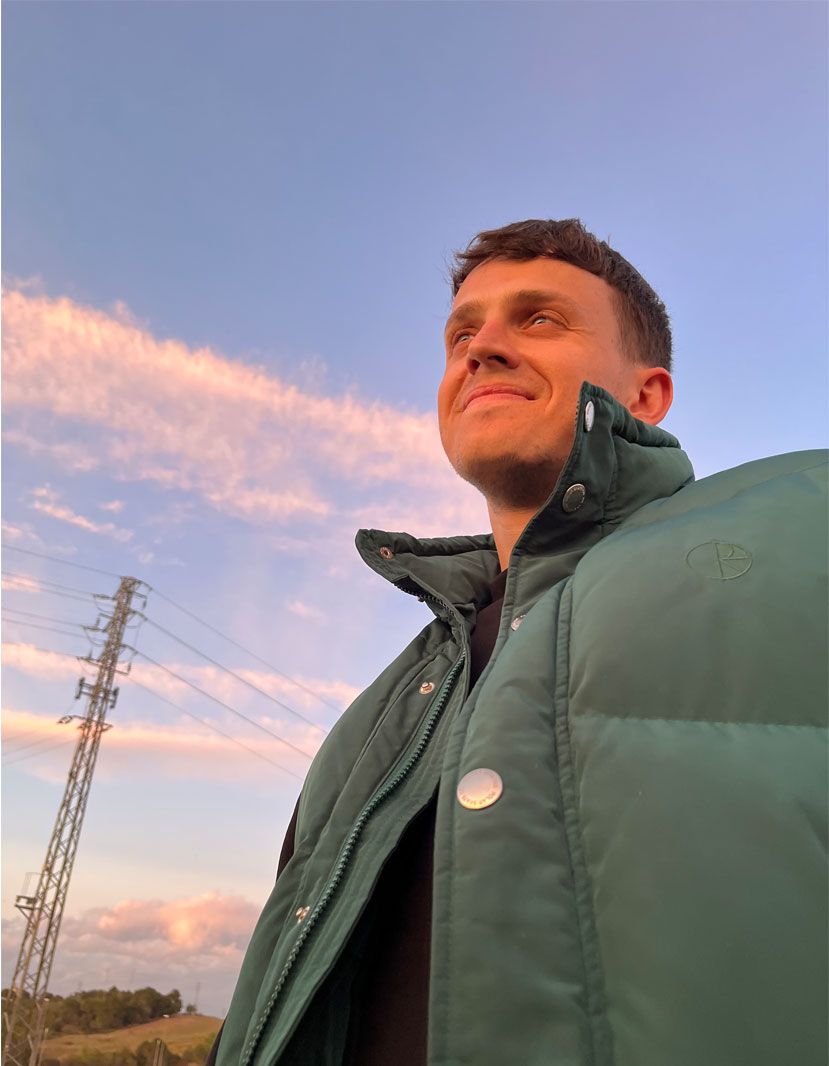

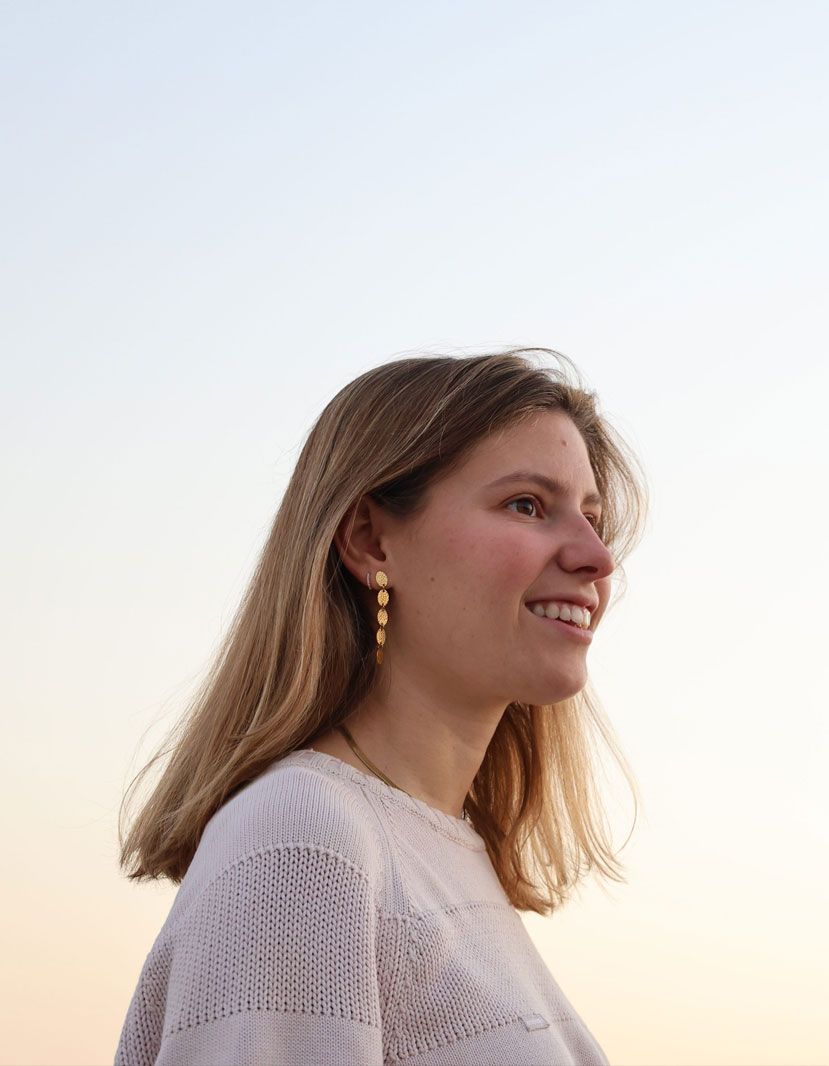

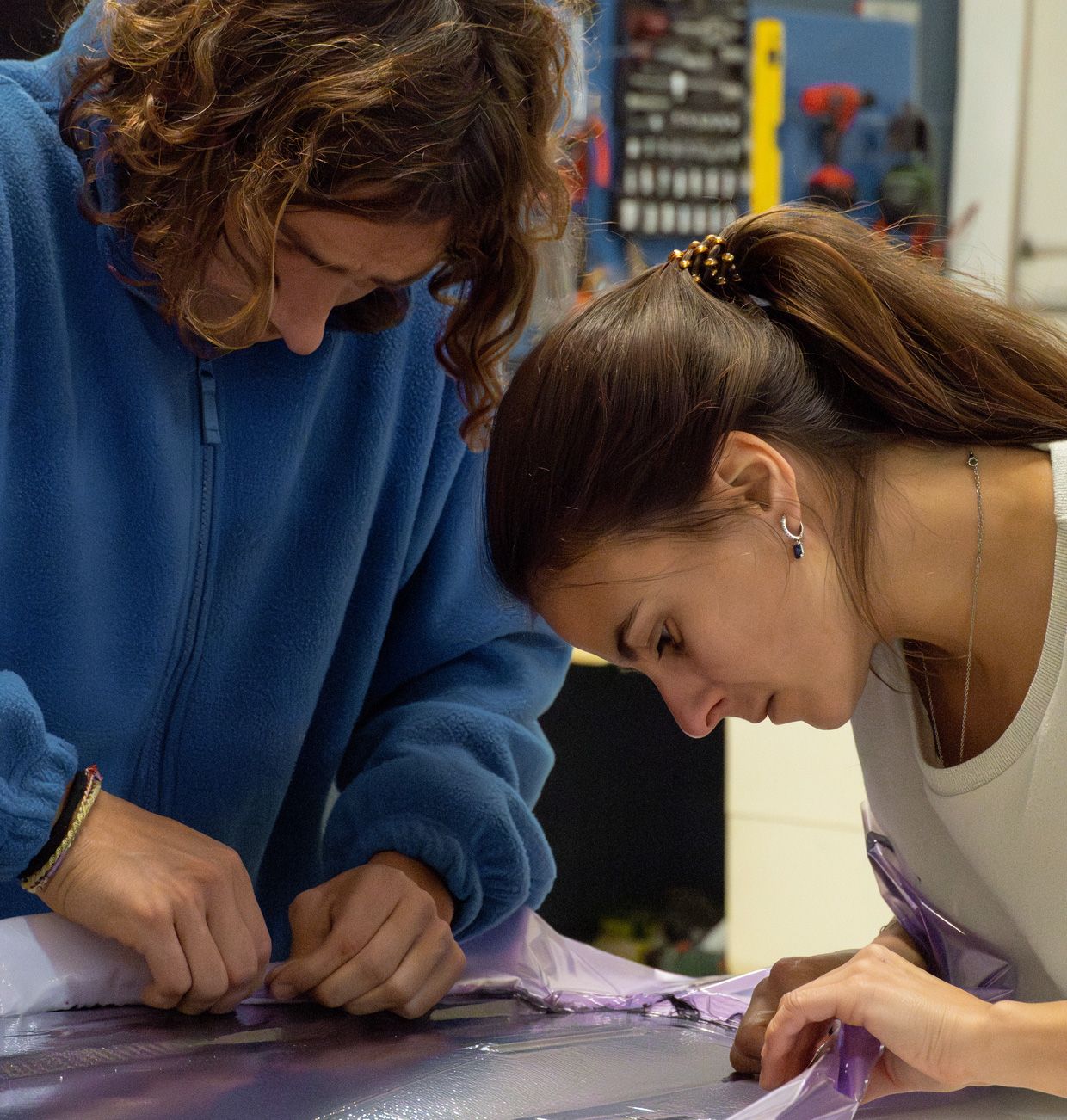
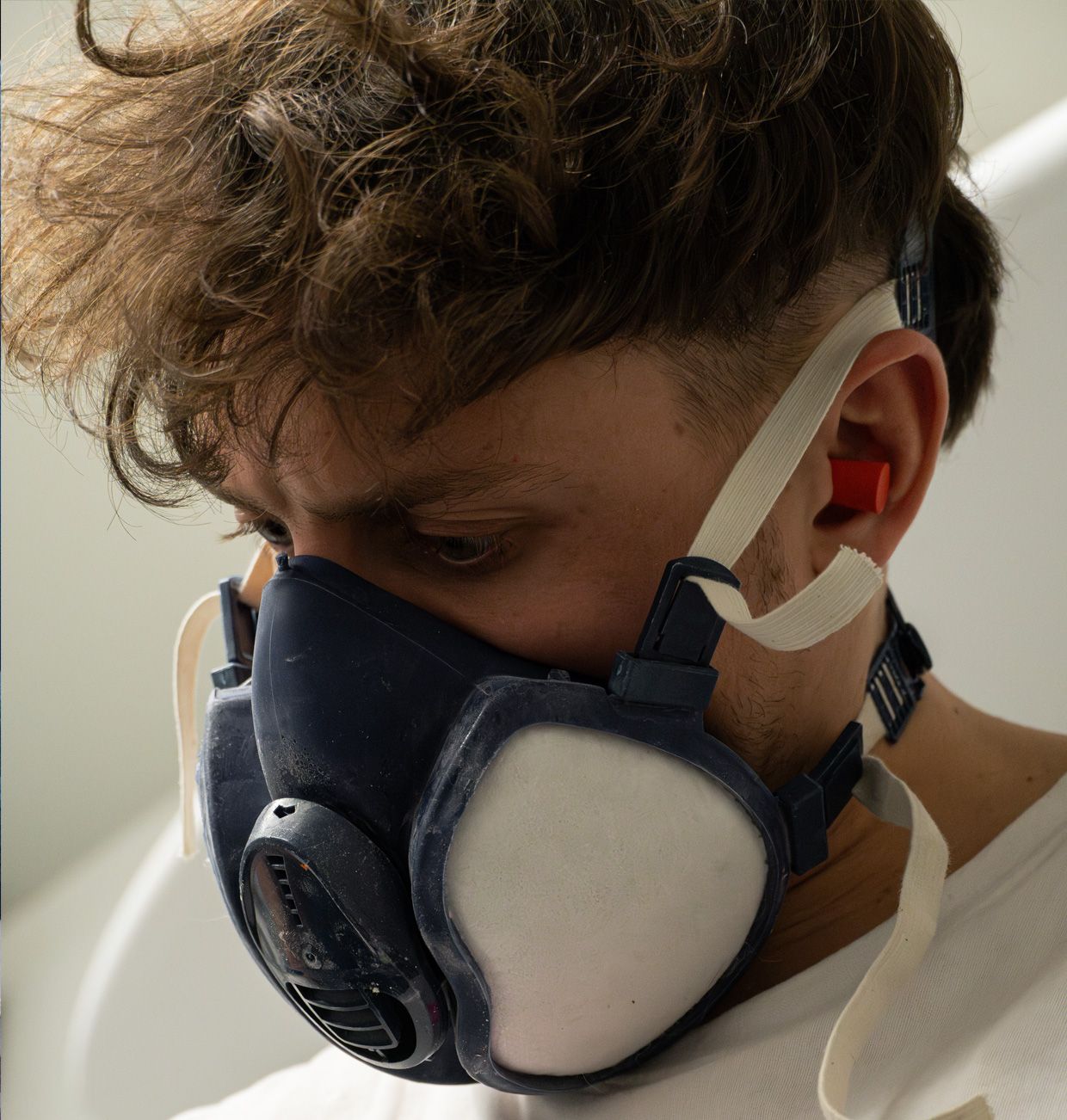
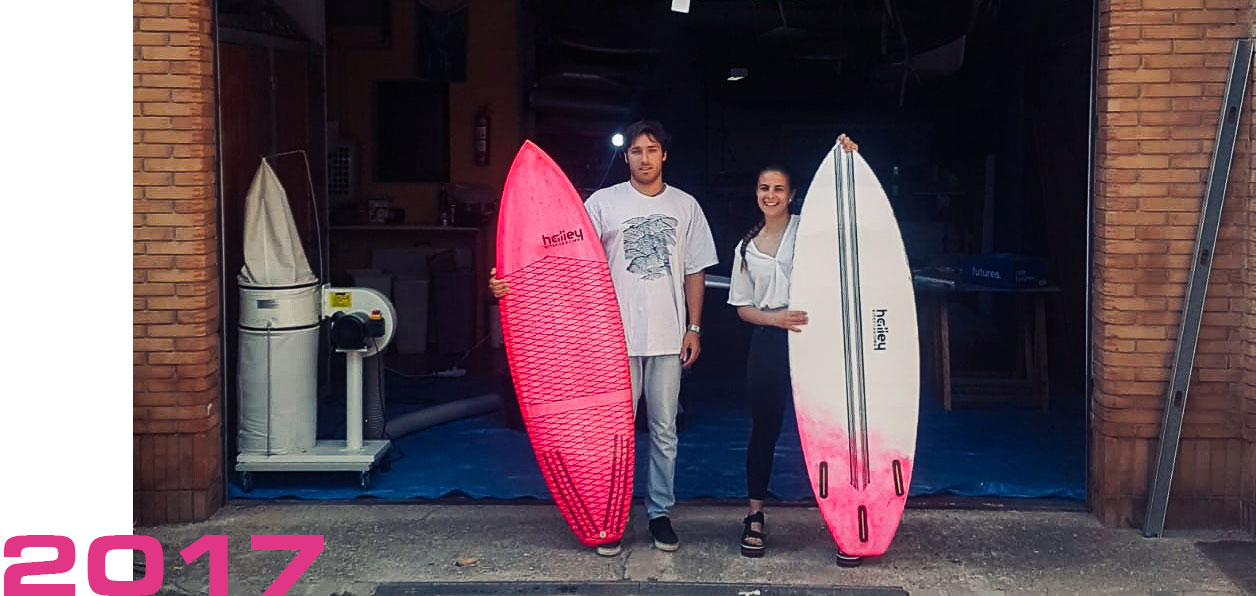
During autumn 2017, two young engineering students and watersports passionate decided that they should make better kite surfboards. Dani had encountered the difficulty of finding boards that could withstand the demands of his sessions. Tired of not finding what he needed, he turned to Júlia, who at that time was studying materials engineering.
Together they began to investigate types of constructions, materials, designs. How could they improve the boards of the moment?
As in any great story, Dani and Júlia started making their own boards in the garage at home, learning and improving in each attempt. And that’s how it all began.
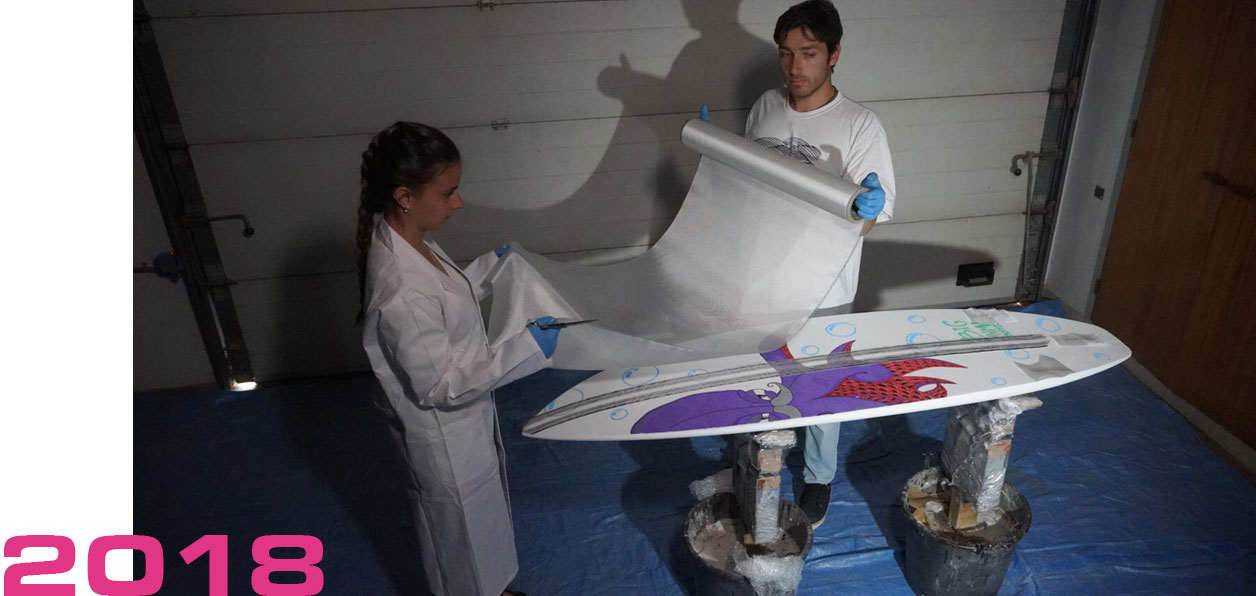
The first spark that started this project was to make better boards. So with what we had at our disposal and what we were discovering, we began to make boards with our own designs, our ideas of what could work and testing materials, constructions, we had to learn everything.
2018 was a year full of challenges, a lot of learning and many “troubles”, but it also laid the foundations for what Halley is today.
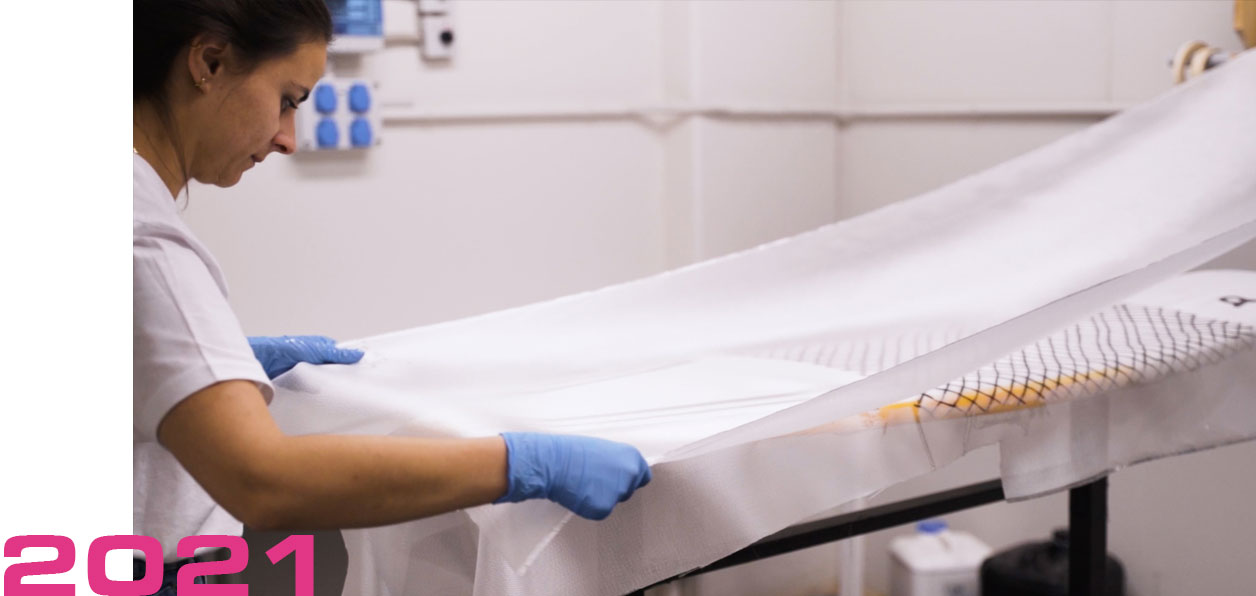
In 2021, we decided to go all in on Halley. We believed it was time to make the leap: from the garage to all the beaches. To do so, we founded the company in the notary office where a friend worked and we began to look for a space that could accommodate our project and become CASA HALLEY.

Bare your style,
Bare Halley.
